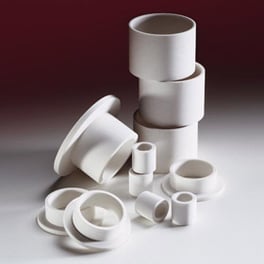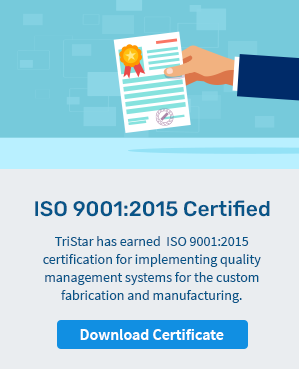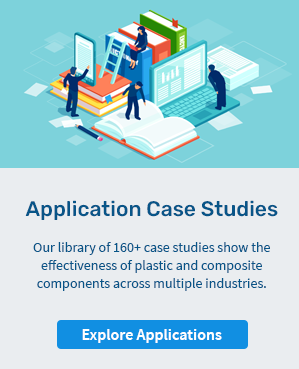
Rulon® 1439 Bearings Keep Hummus on the Table
TriStar was contacted by a major producer of hummus to discuss a problem they were having with the operating life of the steady bearings in their grinders and mixers. Hummus paste is quite aggressive in terms of wearing out components – in this case a PTFE steady bearing supporting the mixing paddle shafts – so our customer asked us if we could address this.
First a Hummus Primer!

Hummus has been around for a very long time and is one of the most popular snack products in the world. It is made from chickpeas (a legume) and is referenced in Egyptian cookbooks from the 13th century. The process today is far more automated than it was back then, but it’s still quite simple.
The chickpeas are soaked in hot water to soften the thin shell. They then go into a peeler which gently wipes the shell away without damaging the “meat.” From there they go through a grinder to pulverize the meat into a paste, then to a mixer where additives are blended in for taste and preservation. Finally, they are degassed to remove any air in the paste and then it is off for packaging.
Virgin PTFE Worked to a Point but Ultimately was Ill Suited to this Application
Our customer was using virgin PTFE for the paddle shaft bearings. This material looks great on paper; it meets the FDA compliance requirement, is a good fit for the temperature range of the process, and is compatible with the soft stainless shafts, but virgin PTFE is a lousy bearing – especially in a wetted, abrasive environment. As a result, our customer was replacing the bearings routinely every 2-3 weeks. And while the cost of the bearings themselves was reasonable, the increased downtime from the excessively short maintenance intervals was becoming a real headache.
Enter Rulon 1439 – An FDA Compliant Material Engineered for Submerged Applications
TriStar engineering has seen similar situations in the past and we have several solutions in our product line to address even this unusual combination of abrasive and wet. After reviewing the parameters of temperature, speeds, loads, service times and hardware, we recommended Rulon 1439 as a solid option.
Rulon 1439 is FDA compliant, works very well against stainless steel hardware, has an operating temperature range of -400 to +550°F, can handle CIP (Cleaning in Place) solutions without issues, and easily met the speed and load requirements of the application. All this and it is easily able to withstand the abrasiveness of the chickpea/hummus product.
To prove that Rulon 1439 was worth the higher upfront cost, the customer decided to put some bearings into service and let them run for 3 months. They then removed those bearings and found very little wear. Next, they put these same bearings back into service for yet another 3 months and at the end of that test they were still at an acceptable tolerance to keep running.
From 3 weeks with PTFE to 6 months with Rulon… Success!
This is a perfect case for not letting a higher upfront cost scare you away. The customer ultimately saved thousands of dollars in downtime and maintenance – and the bearing was no longer a problem they had to worry about. If you have a bearing or material related challenge you need help with, we encourage you to reach out to our engineering team for some creative problem solving.









